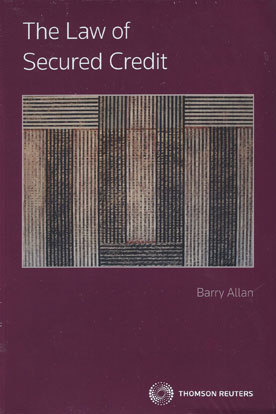
The Law of Secured Credit is a major and in-depth treatise on the range of complex and often interrelated areas of law governing secured transactions.
It engages with issues of international importance, such as the proper ambit of the anti-deprivation rule in insolvency law and the place of the Quistclose trust in the law of secured credit.
The first four chapters provide an overview of the law of secured credit and discuss how the law classifies and distinguishes between the concepts of real property, personal property and fixtures. The recognition of security interests under personal property securities legislation and the characterisation of particular transactions is covered in chapter 5.
Chapters 10 and 15 cover the provision of secured credit to consumers and the consumer protection measures that the law extends to debtors. Chapters 11 to 13 discuss the law governing the priority of security interests, and chapter 14 considers the procedures to be followed when enforcing real property mortgages and personal property security interests.
Chapter 16 examines the general law of guarantees, which can provide creditors with an effective alternative to security interests. Chapter 17 canvasses the status of security interests when debtors are insolvent, including an examination of when transactions designed to protect creditors might be void as being contrary to the general principle of equal sharing.